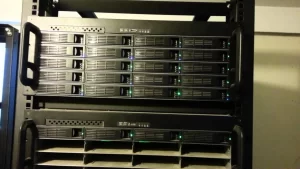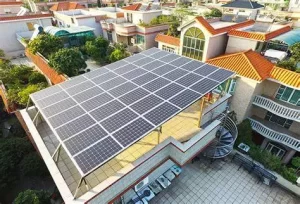How to Choose the Right Solar Energy Storage Battery for Your Home? A Comprehensive Guide
Choosing the right solar energy storage battery for your home is a crucial decision that involves understanding various technical aspects, financial considerations, and practical implications. This comprehensive guide will walk you through everything you need to know to make an informed choice.

In recent years, solar energy storage batteries have revolutionized the way homeowners can utilize solar power. These batteries allow you to store excess electricity generated by your solar panels during the day for use later when the sun is not shining. This capability not only enhances energy independence but also improves the efficiency and costeffectiveness of residential solar energy systems.
Benefits of Solar Energy Storage Batteries
Energy Independence: Reduce reliance on the grid by storing energy for use during peak demand periods or during power outages.
Financial Savings: Minimize electricity bills by maximizing selfconsumption of solar energy and potentially selling excess electricity back to the grid.
Environmental Impact: Lower your carbon footprint by reducing dependency on fossil fuels for electricity generation.
Factors to Consider When Choosing a Solar Energy Storage Battery
Battery Capacity and Power
Capacity: The amount of electricity a battery can store, typically measured in kilowatthours (kWh). Determine your household’s average daily electricity consumption to estimate the necessary capacity.
Power: The rate at which a battery can deliver electricity, measured in kilowatts (kW). Higher power ratings enable the battery to handle appliances with higher energy demands simultaneously.
Battery Chemistry
Different battery chemistries offer varying performance characteristics:
Leadacid: Affordable but limited in lifespan and depth of discharge.
Lithiumion: Longer lifespan, higher efficiency, and deeper discharge capabilities. Most popular choice for residential applications.
Flow batteries: Suitable for largescale storage solutions but less common in residential settings due to higher costs.
Lifecycle and Warranty
Cycle Life: Number of chargedischarge cycles a battery can endure before its capacity degrades significantly. Lithiumion batteries generally offer longer cycle lives compared to leadacid batteries.
Warranty: Check for manufacturer warranties that cover performance guarantees over a specified number of years or cycles.
System Compatibility and Integration
Ensure compatibility with your existing solar PV system and inverter:
Voltage and Current Compatibility: Match battery specifications with those of your solar panels and inverter to optimize system performance.
Smart Energy Management: Look for batteries that integrate with smart energy management systems to maximize efficiency and control.
Installation Requirements
Consider installation logistics and costs:
Physical Space: Assess available space for battery installation, considering factors like size, weight, and ventilation requirements.
Installation Complexity: Evaluate whether additional equipment or modifications to your electrical system are necessary.
Financial Considerations
1.Initial Costs
Cost per kWh: Calculate the cost per kWh of storage capacity to compare different battery options.
Incentives and Rebates: Research available financial incentives, tax credits, or rebates offered by local governments or utilities to offset initial costs.
Operational Savings
Electricity Bill Savings: Estimate potential savings on electricity bills by storing and using solar energy during peak times or selling excess electricity back to the grid.
Return on Investment (ROI): Calculate the payback period by comparing the upfront costs with anticipated savings over the battery’s lifespan.
Maintenance and Monitoring
Routine Maintenance: Understand maintenance requirements such as periodic inspections, cleaning, and ensuring optimal operating conditions.
Monitoring: Utilize monitoring systems to track battery performance, state of charge, and energy usage patterns to optimize operation.
Conclusion
Choosing the right solar energy storage battery involves balancing technical specifications, financial considerations, and practical aspects of installation and maintenance. By understanding your household’s energy needs, evaluating different battery options, and considering longterm savings and benefits, you can make a wellinformed decision that enhances your energy independence and sustainability.
In conclusion, investing in a solar energy storage battery is not just about choosing a technology—it’s about making a commitment to a cleaner, more sustainable future for your home and the planet.
Contact us
- Email:[email protected]
- Tel: +86 13651638099
- Address: 333 Fengcun Road, Fengxian District, Shanghai
Get A Quote Now!

Read more

Unveiling Photovoltaic+Energy Storage: Four Major Application Scenarios Leading the Future of Energy
In this way, the energy landscape is evolving, and one of the most thrilling developments in renewables is the integration of photovoltaics energy storage.

From Theory to Practice: Four Methods for Estimating Photovoltaic Power Generation
Photovoltaic power generation has become an essential part of modern energy solutions, particularly in home solar systems and distributed power applications

Rack-Mounted Lithium Iron Batteries: Creating Efficient and Reliable Energy Storage Solutions
When it comes to modern energy solutions, rack-mounted lithium iron batteries are taking center stage in a variety of industries. Whether you’re powering data centers, stabilizing energy for households, or keeping critical systems online at 5G base stations, these batteries have become the unsung heroes of our electrified world.

Late Night Energy Saving Tips: How to Maximize Electricity Savings During Off-Peak Hours
With rising energy costs, homeowners are increasingly exploring innovative ways to save on their electricity bills. One effective approach is utilizing off-peak hours—times when electricity rates are significantly lower due to reduced demand.
